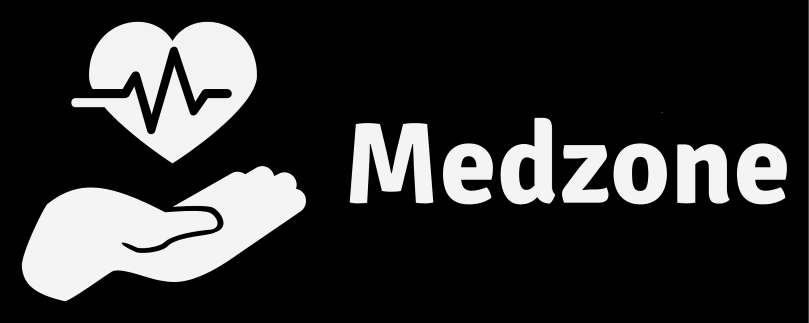Overview of Vitamin- foods, functions & deficiencies
Water-soluble vitamins are vitamin C and the B. These nutrients are effortlessly absorbed by the body and aren't storage in massive quantities, so that they want to be replenished often via food regimen.
Fat-soluble nutrients consist of vitamin A, D, E, and K. These vitamins are storage in the body fatty tissue and liver, so that they don't require regularly as water-soluble nutrients. However, due to the fact they may be saved in the body, immoderate consumption of fat-soluble nutrients can cause toxicity.
Vitamin A
- Sources: liver, fish oil, egg yolks, and orange/yellow culmination and greens like carrots, candy potatoes, and mangoes.
- Functions: promotes night vision, helps immune system, and performs a function in cell growth and development.
- Deficiency: can cause night blindness, dry pores and skin, and a multiplied chance of infections.
Vitamin B1 (thiamine)
- Sources: pork, complete grains, nuts, and legumes.
- Functions: facilitates the body convert meals into energy, helps nerve actions, and performs a function in muscle contraction.
- Deficiency: can cause beriberi (a condition that affects the nervous system, coronary heart, and muscles) and Wernicke-Korsakoff syndrome (a brain disorder due to alcoholism).
Vitamin B2 (riboflavin)
- Sources: dairy products, eggs, lean meats, and leafy greens vegetables
- Functions: facilitates the body converts foods into energy and helps wholesome pores and skin, eyes, and nerves.
- Deficiency: can cause pores and skin rash, sore throat, and sensitivity to light.
Vitamin B3 (niacin)
- Sources: meat, fish, poultry, and complete grains.
- Functions: help healthy pores and skin, nerves, and digestion.
- Deficiency: can cause pellagra (a circumstance that reasons dermatitis, diarrhea, and dementia).
Vitamin B5 (pantothenic acid)
- Sources: meat, fish, poultry, complete grains, and legumes.
- Functions: helps healthy skin, hair, and nails.
- Deficiency: rare, however can cause fatigue, numbness, and tingling withinside the fingers and feet.
Vitamin B6
- Sources: poultry, fish, potatoes, and bananas.
- Functions: support healthy brain development, helps regulate the mood
- Deficiency: can cause anemia, pores and skin rash, and depression.
Vitamin B7 (biotin)
- Sources: eggs, nuts, complete grains, and candy potatoes.
- Functions: converts foods into energy and important to maintain healthy skin, nails, hair.
- Deficiency: rare, however can cause hair loss, pores and skin rash, and neurological symptoms.
Vitamin B9 (folic acid)
- Sources: leafy green vegetables, citrus fruits, beans, and fortified cereals.
- Functions: facilitates the frame make new cells and helps fetal improvement in the course of pregnancy.
- Deficiency: can cause anemia, neural tube defects, and a multiplied chance of sure cancers.
Vitamin B12
- Sources: meat, fish, poultry, and dairy products.
- Functions: facilitates the frame make new cells and helps healthy nerve feature.
- Deficiency: can cause anemia, nerve damage and cognitive impairment.
Vitamin C
- Sources: citrus fruits, berries, kiwi, tomatoes, and peppers.
- Functions: helps immune feature, facilitates the make collagen (a protein that helps support to build skin, bones, and blood vessels), and acts as an antioxidant.
- Deficiency: can cause scurvy (a circumstance that reasons bleeding gums, pores and skin rash, and fatigue).
Vitamin D
- Sources: sunlight, fatty fish, and fortified dairy products.
- Functions: helps bone fitness, immune feature, and performs a function in mobileular boom and improvement.
- Deficiency: can cause rickets (a circumstance that reasons susceptible bones and skeleton)
Vitamin E:
- Sources: Nuts and seeds, inclusive of almonds, peanuts, and sunflower seeds, vegetable oils, inclusive of wheat germ oil, sunflower oil
- Functions: an effective antioxidant that facilitates to protect the cells from damaged due to free radicals, helps the immune gadget and facilitates to widen blood vessels, that can enhance circulation, facilitates to hold wholesome pores and skin and eyes and might reduce the chance of cancers and coronary heart disease.
- Deficiency: rare, however can cause nerve and muscle harm, weakened immune feature, and anemia.
Vitamin K:
- Sources: Green leafy greens, inclusive of kale, spinach, and collard greens, broccoli, Brussels sprouts, and different cruciferous greens, eggs
- Functions: critical for blood clotting and facilitates to activate the proteins which can be involved in the clotting process, performs a function in bone fitness via way of means of supporting to adjust calcium metabolism, have anti-inflammatory consequences and will reduce the risk of chronic diseases
- Deficiency Symptoms: bleeding issues and increase chance of fractures because of poor bone health.



Post a Comment